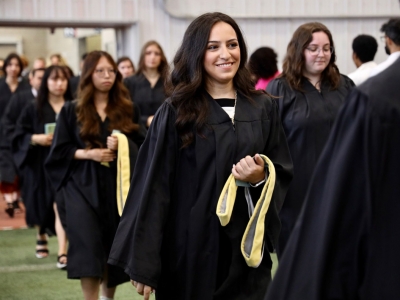A dozen Carleton University researchers have been awarded the Social Sciences and Humanities Research Council’s (SSHRC) Insight Grants. More than $1.8 million in funding will support innovative research in diverse areas, including collective nostalgia, immigration and elder care, accurately measuring the risk of investments and disability in film.
In addition, 54 Carleton graduate students have received more than $2.1 million in the form of fellowships and scholarships from SSHRC.
“These investments in world-class research at Carleton will support important, groundbreaking projects that will have a positive impact on society,” says Rafik Goubran, vice-president (Research and International). “We are thankful for the generous support of the Social Sciences and Humanities Research Council.”
Carleton researchers receiving funding are looking at key areas such as consumer protection in the age of Internet commerce and Big Data, the impact of Brexit on Canada’s foreign policy, the psychology of self-control strategies, and collective nostalgia.
When a societal group shares stories that pine for days gone by, even in such instances where those days may only exist in the mind, it gives rise to collective nostalgia. While stories can help bring communities together, harkening back to a nostalgic past during tough times can also be a powerful tool for populist movements. Michael Wohl, a professor in the Department of Psychology, will research how collective nostalgia can provoke constructive or destructive action through efforts to reclaim a connection to a storied past.
“Nostalgia is a powerful emotion, especially when members of a group perceive themselves as under threat in the modern day,” says Wohl. “This research will examine the potential real-world impacts of this phenomena – from communicating problems to voting patterns.”
While economic and labour immigration is welcomed by many countries, these same governments restrict entrance for older family members. Susan Braedley, a professor in the School of Social Work, will explore the policy choices governments make that affect the parents and grandparents of immigrant families. Using case studies and innovative methodologies, Braedley’s team will compare how immigration and welfare policies filter older family immigrants, at both the national and subnational levels in Canada and Europe.
“In January, the once-a-year online window just to register to apply to sponsor parents’ or grandparents’ immigration to Canada closed in 11 minutes. Over 80,000 families tried and failed to register in those minutes,” says Braedley. “Family immigration for parents and grandparents is a hot political topic in Canada and internationally. We will identify how policy choices differently affect immigrant families and their care arrangements in three countries, providing evidence to policy-makers and advocates.”
From casual investors to multi-national financial institutions, understanding the risk of investments is extremely important. A miscalculation on the error margin of a risk measurement can do substantial damage to portfolios crafted to the investor’s risk tolerance. Lynda Khalaf, a professor in the Department of Economics, will evaluate if risk measures are being held to proper standards when accounting for the error margin of these estimates. Khalaf’s team will use investment firms’ risk estimates to deduce and evaluate pricing models. This research will verify whether the models accurately measure general risk and extreme outcomes, known as tail risk.
“The error margin of a risk estimate is vitally important – especially when it comes to extreme risk,” says Khalaf. “By determining the margins of these estimates and the reliability of the models that are providing the information, the knowledge produced through this research will assist investors, banks and regulators alike.”
James Deaville, a professor in the School for Studies in Art and Culture, and his team will be analyzing how films portray people with disabilities on screen. The research will focus on cinematic representations of mute characters, whereby filmmakers frequently use a soundtrack as substitute for a character’s speech. Working with disability specialist Stefan Honisch and the Canadian Centre for Disability Studies, Deaville’s team will construct a database of films featuring muteness, analyze representative examples of muteness in movies, and disseminate their research findings. A blog and podcast will be produced to discuss how new and classic films feature disability.
“Disability is a persistent, if typically unobserved, feature of screen entertainment – requiring the eugenicist solution of either a cure or removal from society (containment in institutions),” explains Deaville. “I would like to draw the public’s attention to how this sinister ideology functions in film and television representations of one particular disability, muteness, as witnessed in popular characters ranging from the zombies in The Walking Dead to Elisa in The Shape of Water.”
Media Contact
Steven Reid
Media Relations Officer
Carleton University
613-520-2600, ext. 8718
613-265-6613
Steven_Reid3@Carleton.ca
Carleton Newsroom: https://newsroom.carleton.ca/
Follow us on Twitter: www.twitter.com/Cunewsroom
Need an expert? Go to: www.carleton.ca/newsroom/experts
Wednesday, July 17, 2019 in News Releases
Share: Twitter, Facebook



